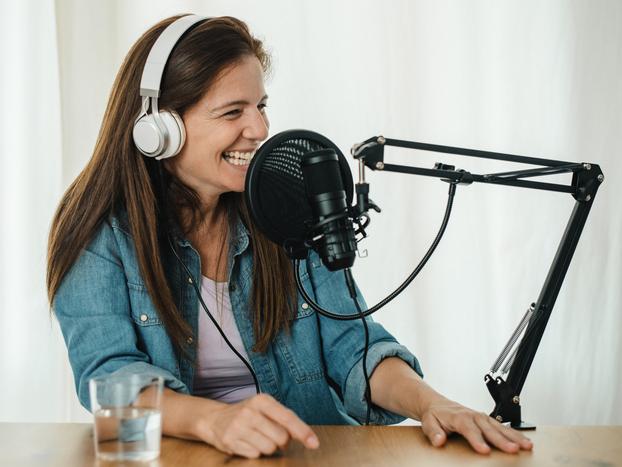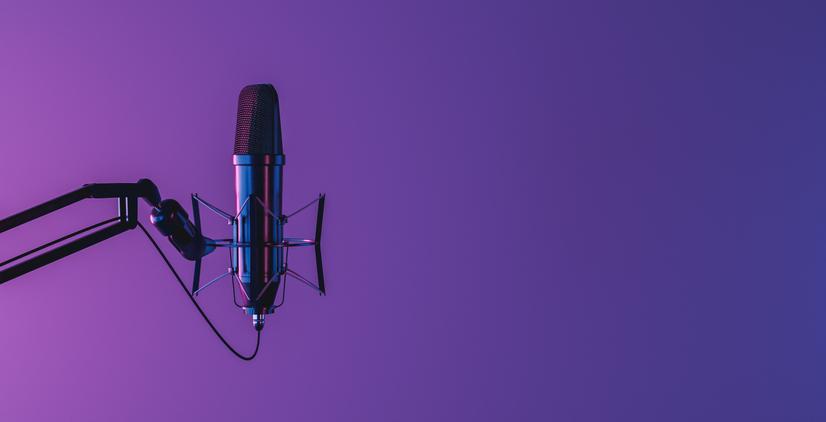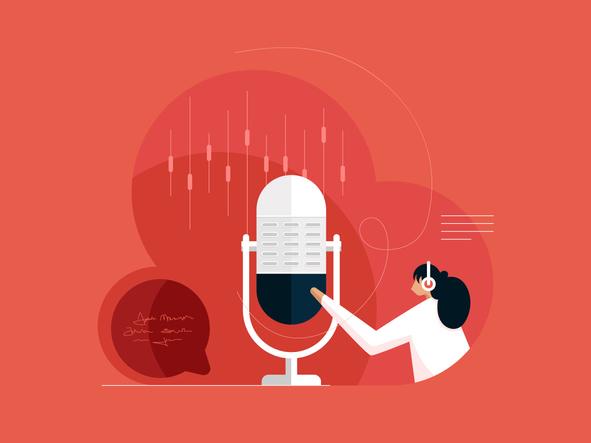
Hybrid learning through podcasts: a practical approach
Adapting practice-based learning to a blend of synchronous and asynchronous delivery gives learners more control and creates opportunities for real-world learning of skills such as podcast production, writes Catherine Chambers

You may also like
Popular resources
The pandemic not only accelerated the shift towards online and blended learning, it also sparked a pedagogical rethink as to how subjects, particularly practice-based subjects, could be taught. We decided to embrace this challenge and leverage a hybrid-learning model for a new undergraduate module on radio and podcast production. Hybrid learning provides students with greater control over their learning and enables the development of employability skills, supporting practice-based group work through in situ activities.
Aligned with Keele’s curriculum expectations framework, the module was designed around podcasts to support inclusivity, active learning, digital capability and external engagement.
As module lead, I used the ABC learning design framework to identify how best to scaffold the learning to support acquisition, discussion, collaboration, investigation, practice and production, considering both asynchronous and synchronous (live, in situ or online) delivery. Podcasts play a significant role in asynchronous self-directed learning; students can listen at their own pace to develop a knowledge and understanding of different genres, formats and production approaches. In situ class sessions include more focus on practice and developing podcast production skills, from simply producing a podcast on a mobile device in week one to honing more professional editing and sound design skills over the course of the module to producing their final podcast for the assessment.
- Podcast as pedagogy: discovering the joys of a new teaching format
- Why hybrid learning needs hybrid faculties
- The 7 steps for designing activities in hybrid courses
I produce and curate asynchronous podcast content for the module, which is scheduled weekly and released to students in full ahead of the module launch via playlists. Students are expected to listen to two podcasts each week. The first is an original interview series with different industry experts each week. The second is a genre-based podcast. The purpose of these podcasts is to support understanding of the weekly topic and develop students’ critical-thinking skills. The expert interviews are made available to listen on-demand in full via Soundcloud, while the genre podcasts are curated using podcast search engine Listen Notes and can be listened to on-demand. Both are embedded in the virtual learning environment (VLE).
Podcasts for real-world relevance
Traditionally, practical subjects, such as podcast production, have been confined to in situ delivery due to the hands-on nature of teaching those subjects. However, advances in technology have enabled access to remote recording software, opening opportunities to reach a wider range of industry experts. With a basic understanding of production values and access to experts, academic staff can create real-world learning experiences delivered in diverse ways. This was central to the design thinking of the hybrid podcast and radio production module; access to tailored, on-demand, industry-informed resources through podcasting fosters independent and more career-ready learners
Developing critical thinking through discussion
Students are asked to listen to the “expert” interview podcast first. These 15- to 20-minute interview-based podcasts delve into the learning outcomes for each week and give practical examples. For instance, in week four’s topic, “Developing the idea”, leading independent producer Geoff Jein, a former BBC producer and head of audio at TBI Media, joins me in a conversation on topics aligned to the learning outcomes such as “describe what makes a good idea” and “summarise your podcast idea in eight words”. Geoff explains the difference between a “notion” and an “idea”, and how to use the 5Fs framework (focus, format, fame, fortune, finally) to benchmark ideas.
Students are then asked to reflect on the industry interview, which is designed to support skills building and the planning and development of their own podcast. Discussion prompt questions are used for guidance (for example: “Does your idea have the potential to develop into a fully fledged narrative? How do you know?”)
Students are also asked to listen to a podcast from the module playlist that is intended to develop critical-thinking skills. Each week includes a different podcast from producers ranging from BBC Sounds (Uncanny, Coiled) to Vice/Brent London Borough (Vent, an award-winning documentary podcast produced by young people “telling you the stories we care about”). The playlist also includes landmark series such as Serial, which popularised the true-crime podcast genre. Students are asked to critically review the week’s podcast guided by prompts to develop critical listening skills (such as: “How would you describe the style and tone of the podcast?”) and share their feedback on the VLE forum.
The playlist is updated each year with a focus on promoting inclusivity and diversity through the selection. Students are also asked to nominate podcasts for the cohort to review.
Using podcasts in situ to support inclusivity
Despite its benefits, the hybrid approach has posed challenges for synchronous sessions; attendance varied between online and in-person sessions, with the highest attended session (100 per cent attendance) being an online industry-pitching session.
With asynchronous delivery, students appreciated the opportunity to listen to the podcasts in their own time, but engagement with critical reflection on podcasts in online discussions varied; some students demonstrated a high level of analysis and reflection, but not everyone in the cohort participated.
Feedback emerged that some students felt uncomfortable posting reviews publicly even within the private module space. To address this, adjustments have been made to promote engagement and inclusivity and fostering in-class discussion ahead of online. To minimise cognitive load, maximise participation in person and online and encourage attendance in person, we plan to introduce podcast listening in situ, using the think-pair-share approach in class during week one and providing more choice on elements to review (such as the use of music or role of presenter) in the online discussions with an expectation that students can review on one area; we have also removed the minimum/maximum discussion word count to encourage participation.
Empowering learners’ independence
End-of-module evaluations indicated that students valued the independence afforded by the hybrid approach. The Sound Advice podcast series not only provided independent learning within the module but also equipped them with key transferable knowledge and skills through exposure to experts across the industry, which supports future employment opportunities. Integrating podcasts into hybrid learning environments online and in situ offers practical benefits regardless of the subject matter, fostering engagement, skills development and critical thinking.
Catherine Chambers is director of the Keele Institute for Innovation and Teaching Excellence (KIITE) and module lead for podcast and radio production at Keele University.
If you would like advice and insight from academics and university staff delivered direct to your inbox each week, sign up for the Campus newsletter.



Comments (0)
or in order to add a comment